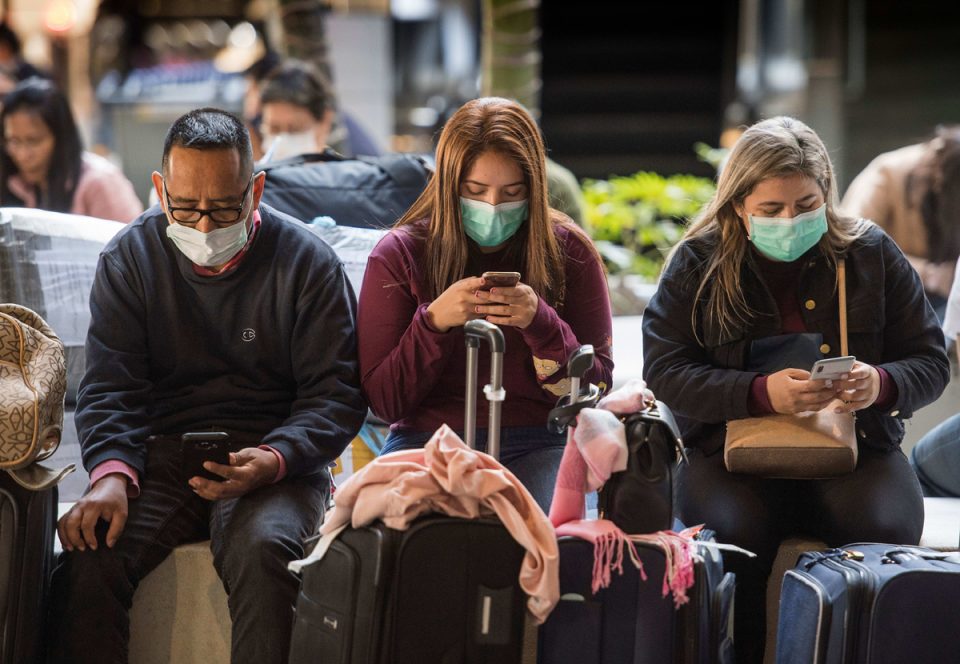Germany is set to institute a two-week home quarantine for citizens returning from abroad, as part of efforts to contain the spread of the novel coronavirus.
The measure, which the government’s coronavirus crisis cabinet on Monday agreed to recommend to the federal states, will apply to German nationals, long-time residents or citizens of the European Union who return to the country after several days abroad.
The new measure, to be instituted on April 10, will not affect cross-border commuters, business travellers or service technicians who have to enter or leave the country for a few days of work.
Exceptions are also foreseen for lorry drivers, medical staff and travellers who transit through Germany.
People who are not citizens or long-time residents have already been prevented from coming into Germany since mid-March, unless they have a “valid reason to travel.”
Around 70,000 people have been turned away since Germany instituted controls at its borders with Austria, Switzerland, France, Luxembourg and Denmark on March 16, according to the German Interior Ministry.
Some officials have floated the possibility of introducing more border controls, but North Rhine Westphalia state Premier Armin Laschet said the crisis cabinet decided against implementing measures between his state and Belgium and the Netherlands.
The liberal Free Democratic Party (FDP) had also rejected the idea of intensifying the border controls.
“The virus does not stop at the borders, but [controlling vehicles] hinders the important movement of goods and leads to kilometre-long traffic jams at the borders,” Stephan Thomae, a top FDP parliamentarian, told dpa.
Germany recorded at least 97,800 coronavirus infections and more than 1,500 deaths by Monday afternoon, according to a dpa tally based on state data.
Chancellor Angela Merkel said on Monday that Germany must build up its own production of protective wear as one consequence from the coronavirus crisis.
Merkel announced the creation of a special unit within the Economy Ministry.
“It is important for us to learn, as one experience from this pandemic, that we need a certain sovereignty here or at least a pillar of self-production,” she said.
Some progress had been made on the supply of face masks, but not as much as would be desirable, the chancellor said.
She added that doctors and care staff had to be “adequately equipped” with protective gear “and not living day to day.”
Merkel also stressed the importance of defending the EU during the coronavirus crisis, which presented the biggest test since its creation.
The pandemic is a “symmetrical shock” that affects all countries equally, she said, arguing that it was in every EU country’s interest that Europe emerges strong from this situation.
Meanwhile, President Frank-Walter Steinmeier is to address the nation in a rare televised speech about the latest coronavirus developments on Saturday, during the Easter weekend, his office announced.
It is the first time the German head of state gives such a speech on current affairs, besides his annual Christmas broadcast.
The country has also worked to contain the economic fallout from the health crisis. The cabinet agreed on Monday to help companies that are struggling due to the epidemic with full state guarantees for loans of up to 800,000 euros (864,565 dollars).
The measure comes on top of an unprecedented aid package for citizens and businesses approved 10 days ago.
Companies will be able to obtain credit guaranteed in full by the state-owned KfW development bank as long as certain conditions are met.
It is meant to give them quicker access to funds than under the previously approved aid package.
The government hopes to prevent a wave of bankruptcies.
It has also been working on an app that people could volunteer to use to track the infection chain of the coronavirus, which can cause the potentially deadly Covid-19 respiratory disease.
This is an “absolutely essential element” for lowering infection rates, government spokesman Steffen Seibert said on Monday, adding that the app should be available for download in the coming days or weeks.




